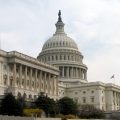
This article is part of an ongoing series tracking the Arkansas Abortion Amendment of 2024 and examining its possible effects on state law.
A proposed constitutional amendment could legalize taxpayer-funded abortion in Arkansas.
The group Arkansans for Limited Government is collecting petition signatures to place the Arkansas Abortion Amendment on the November ballot.
If passed, the amendment would write abortion into the state constitution, allowing thousands of elective abortions in Arkansas every year.
The measure prevents the Arkansas Legislature from restricting abortion during the first five months of pregnancy. It also contains sweeping health exceptions for abortion throughout all nine months of pregnancy – even when a viable child could be delivered instead of aborted.
It automatically nullifies all state laws that conflict with the amendment. That jeopardizes basic restrictions like parental consent and informed consent requirements for abortion, and it threatens to erase medical licensing requirements for abortionists.
The amendment’s language also paves the way for taxpayer-funded abortion in Arkansas.
When abortion is recognized in a state constitution, it gives judges a tool they can use to mandate public funding for abortion.
For example, in 1993 West Virginia’s Supreme Court of Appeals ruled that restrictions on abortion funding violated the state’s constitution. Alaska’s state supreme court issued a similar ruling in 2001. And in 2002 the Arizona Supreme Court ruled the state must pay for abortions that are necessary to preserve the health of pregnant women who are part of the Arizona Health Care Containment System.
In 1988 Arkansas voters passed Amendment 68 to the Arkansas Constitution prohibiting public funding of abortion except to save the mother’s life.
Following a lawsuit by a Little Rock abortion facility, in 1994 a federal court struck down Amendment 68, saying it violated the federal Hyde Amendment — a rider on the federal budget prohibiting public funding of abortions except in cases of rape or incest or to save the life of the mother.
The case went all the way to the U.S. Supreme Court.
On March 18, 1996, the U.S. Supreme Court ruled Arkansas’ Amendment 68 should only be blocked insofar as it conflicted with the federal Hyde Amendment.
Practically speaking, this means Arkansas has prevented public funding of abortion, with the exception of abortions paid for with Medicaid funds in certain circumstances permitted by the federal Hyde Amendment.
The Arkansas Abortion Amendment of 2024 changes Amendment 68 to the Arkansas Constitution, and it nullifies all state laws and amendments that conflict with the abortion amendment. That means the amendment could nullify state laws that prohibit public funding of abortion.
The Arkansas Abortion Amendment would raise new questions about how to interpret Amendment 68, making Amendment 68 susceptible to new legal challenges. A court could block all or much of Amendment 68 if the court determined that Amendment 68 restricted or delayed abortion in violation of the Arkansas Abortion Amendment.
The abortion amendment threatens other state laws against taxpayer-funded abortion as well.
Over the years, Arkansas’ elected officials have taken different steps to prevent state funds and government contracts from going to abortionists and their affiliates. The Arkansas Abortion Amendment likely would nullify these laws because they restrict abortion.
The Arkansas Abortion Amendment would provide state and federal judges with an opportunity to strike down Arkansas’ laws against public funding of abortionists and reinterpret the Arkansas Constitution to permit public funding of abortion.
Arkansans have generally opposed taxpayer-funded abortion, but taxpayer-funded abortion throughout all nine months of pregnancy could become a reality in Arkansas if the abortion amendment passes.
You can download a copy of the amendment here.
Articles appearing on this website are written with the aid of Family Council’s researchers and writers.




